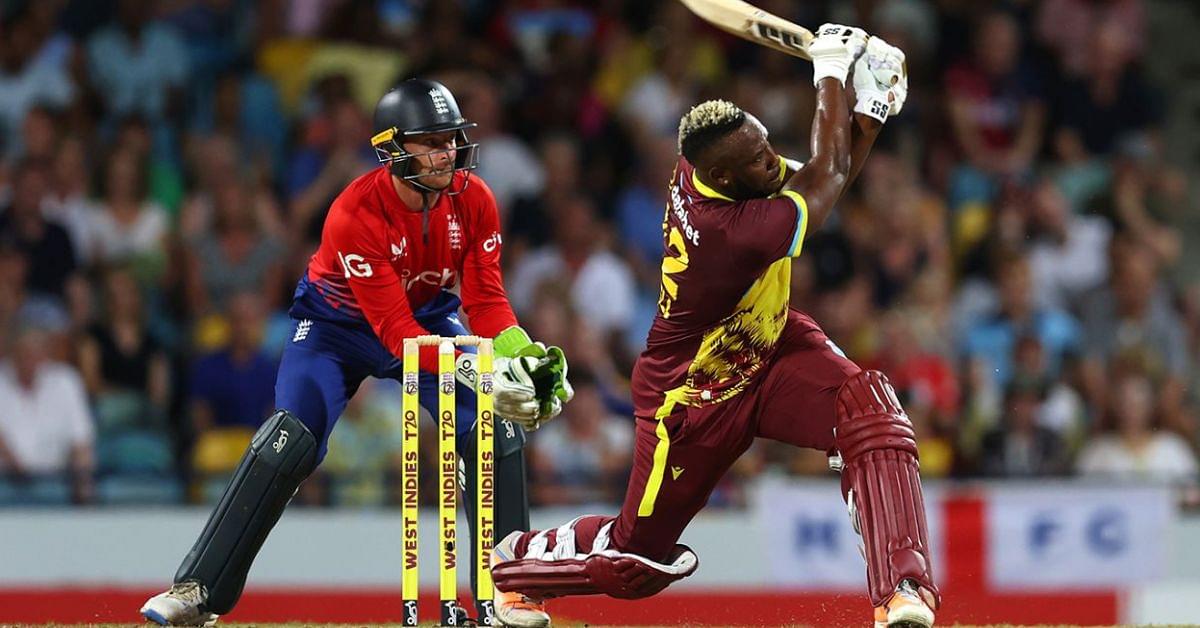The recently concluded first West Indies-England T20I made way for a new rule in the shortest format, i.e., the Stop Clock Rule. This rule aims to speed up the game by keeping time between two overs in check. The Stop Clock Rule has currently been implemented for a six-month long trial basis.
Advertisement
As per the new rule, the third umpire starts a stopwatch right after the completion of an over. With the timer visible on the big screen present across venues, the fielding team has to start the next over within 60 seconds of completion of the last over. If it fails to do so, a warning is given to the fielding captain a couple of times. On the third occasion, a fielding team is penalized by five runs.
In case of a batter’s equipment change, injury break, or any other unavoidable issue, time is adjusted accordingly to not punish the fielding side. Assuming that the fielding team is ready, but the batters are taking their time, the extra time gets adjusted in their bowling innings. These amends aim at eliminating “dead time” from a T20I – a format whose USP lies in its shorter duration.
For those who don’t know, Stop Clock Rule was first recommended by the MCC’s World Cricket Committee comprising legendary captains such as Ricky Ponting, Sourav Ganguly and Kumar Sangakkara. As quoted by ESPNCricinfo, Ponting was quite critical of non-playing time elongating a T20I.
“It is the dead time in the game, so at the end of the over the fielders and the bowlers have to be back in the position and ready to bowl at a certain time. That is a non-negotiable. The same with the new batsman coming to the crease – the bowling team has to be ready when the batsman gets there and he has had a certain amount of time,” Ponting had said in 2018.
How Cricket Counters Slow Over Rate In Other Formats?
Since the start of 2022, ICC (International Cricket Council) have adopted several measures to reduce the duration of white-ball matches by punishing teams for infringements. In T20Is and ODIs, teams are instructed to finish their stipulated quota of overs within a set time frame. If found wanting, they are forced to place an additional fielder inside the 30-yard circle for the remaining overs.
The rule is more strict in the Indian Premier League where, apart from placing a fifth fielder inside the circle, captains and teams are also fined depending on the number of offenses. A captain can even get banned for a game for erring with regard to slow over rate thrice.
In IPL 2023, Royal Challengers Bangalore stand-in captain Virat Kohli was fined INR 24 lakh for not maintaining optimum over rate against Rajasthan Royals. Since it was RCB’s second such instance under Kohli this season, the other members of the Playing XI were also fined either INR 6 lakh or 25% of their match fees (whichever lesser). Even Gujarat Titans‘s Hardik Pandya was fined INR 12 lakh for the same offense against Punjab Kings.
